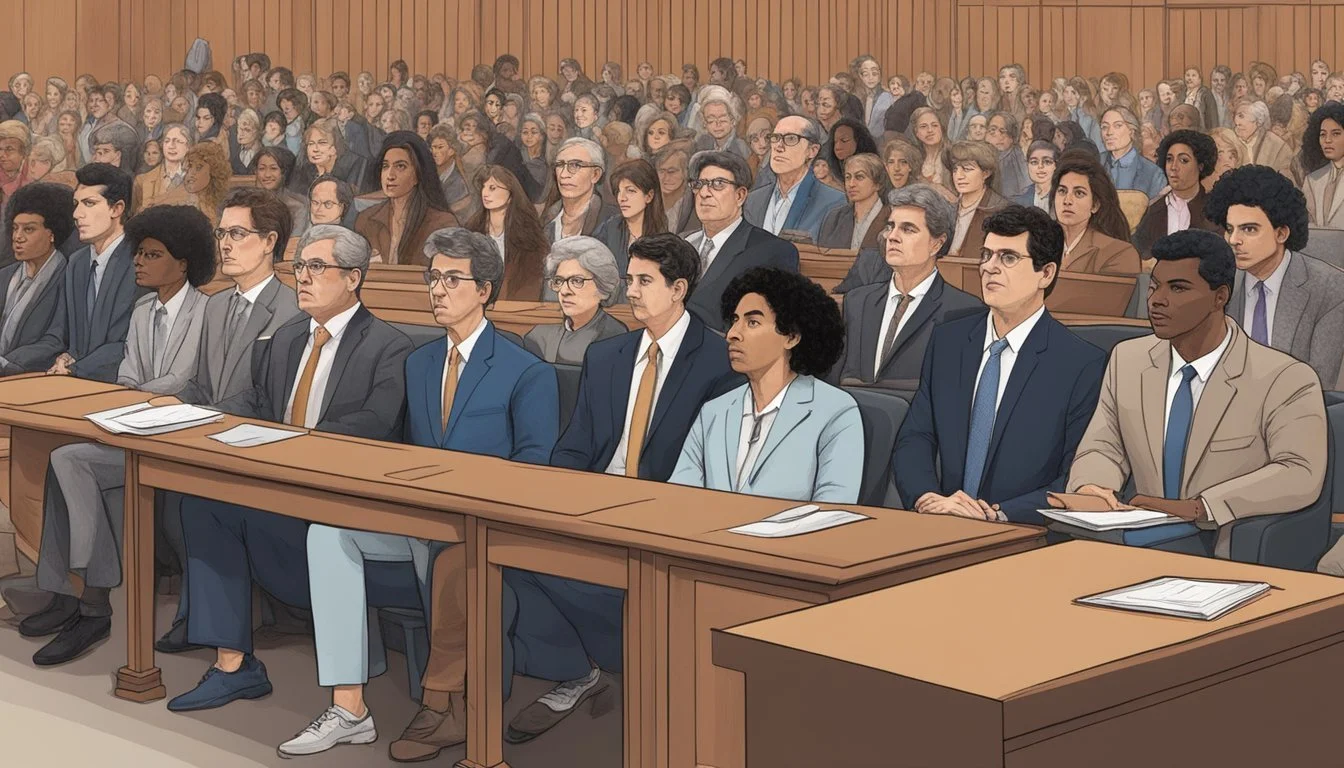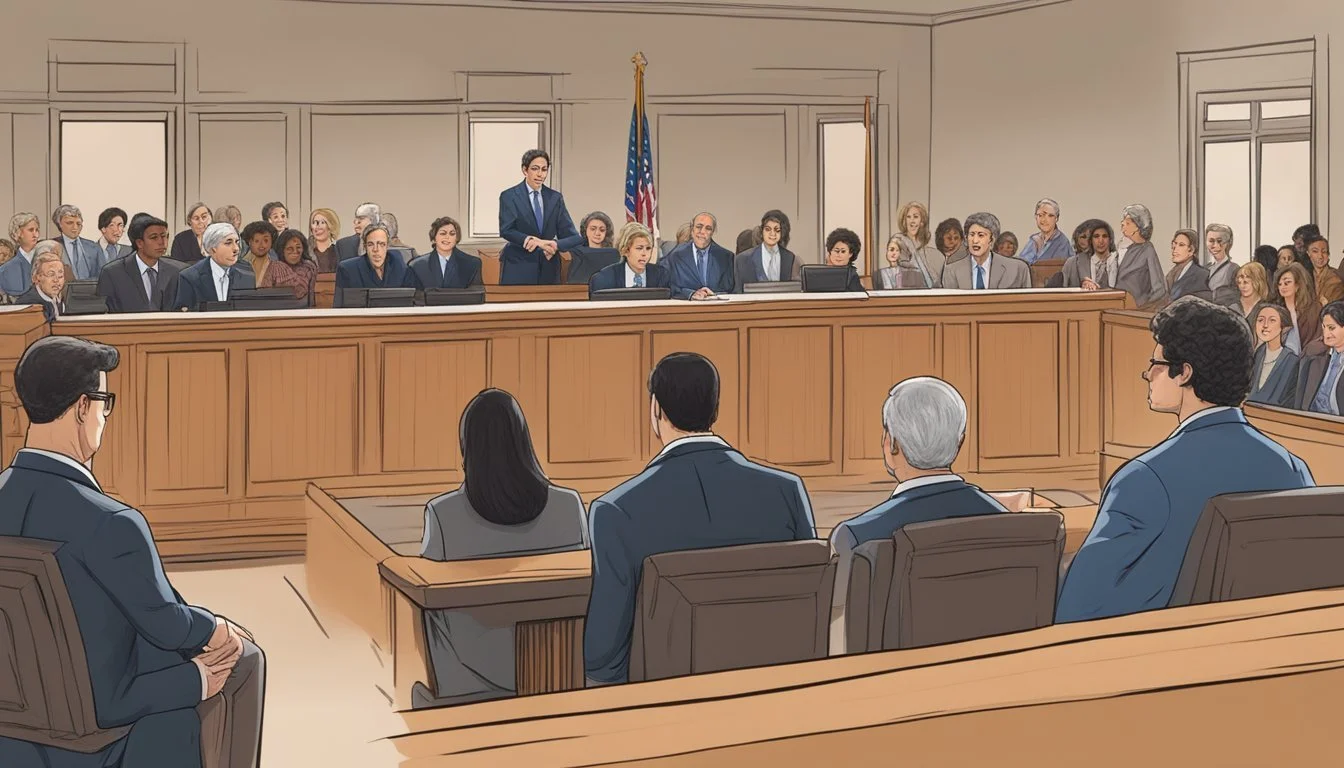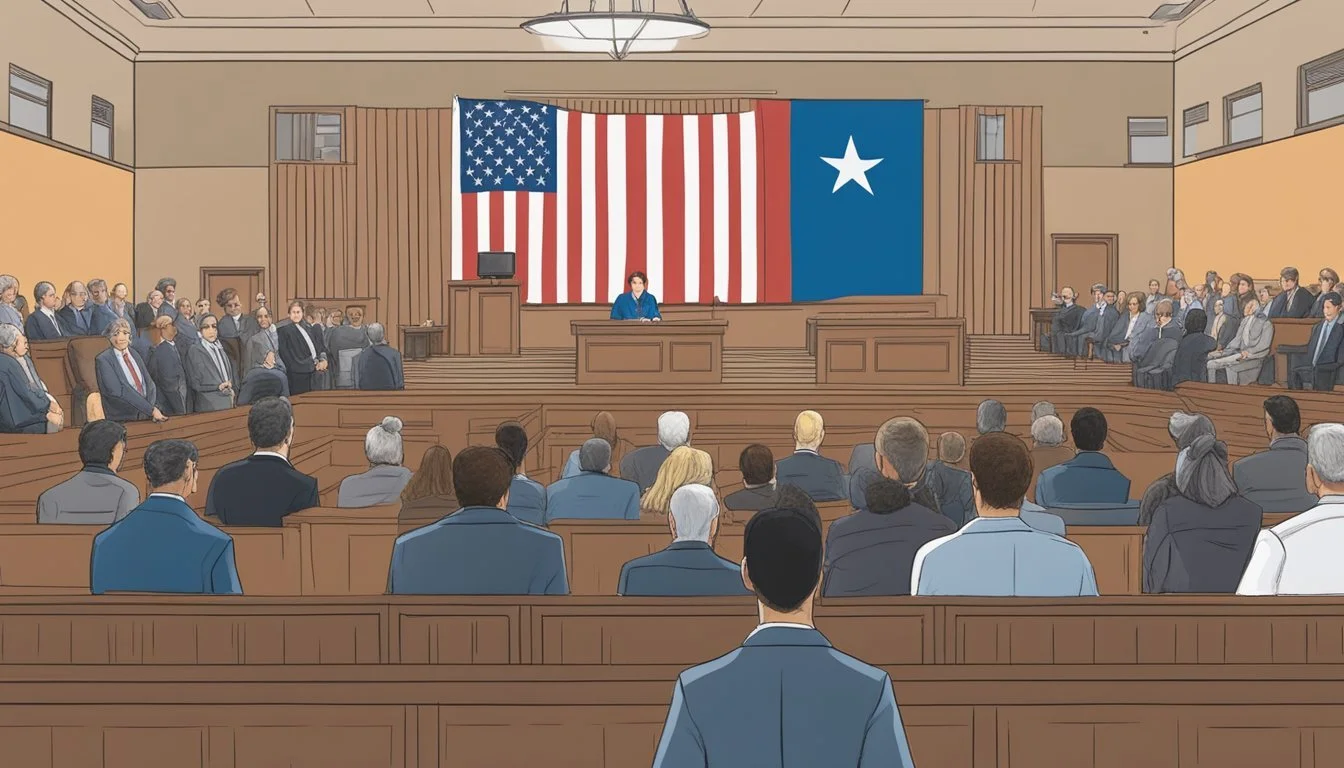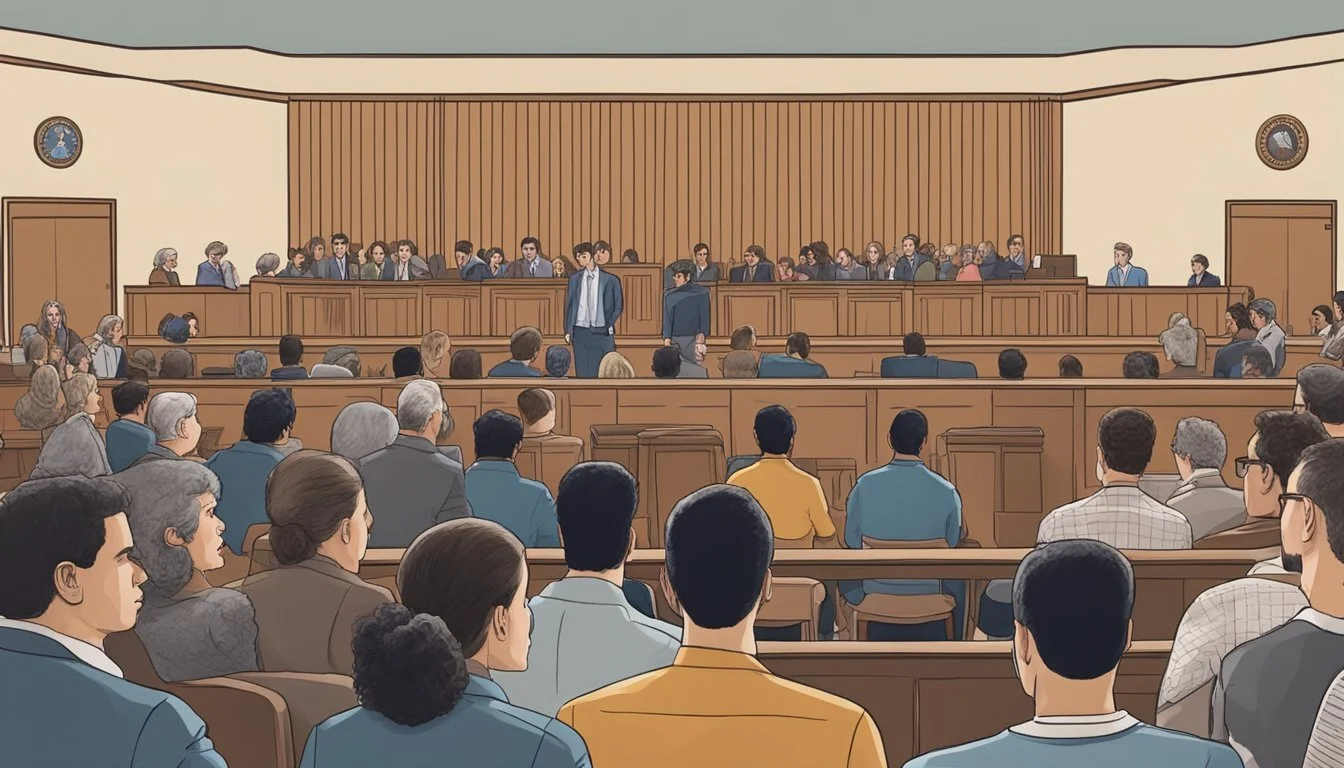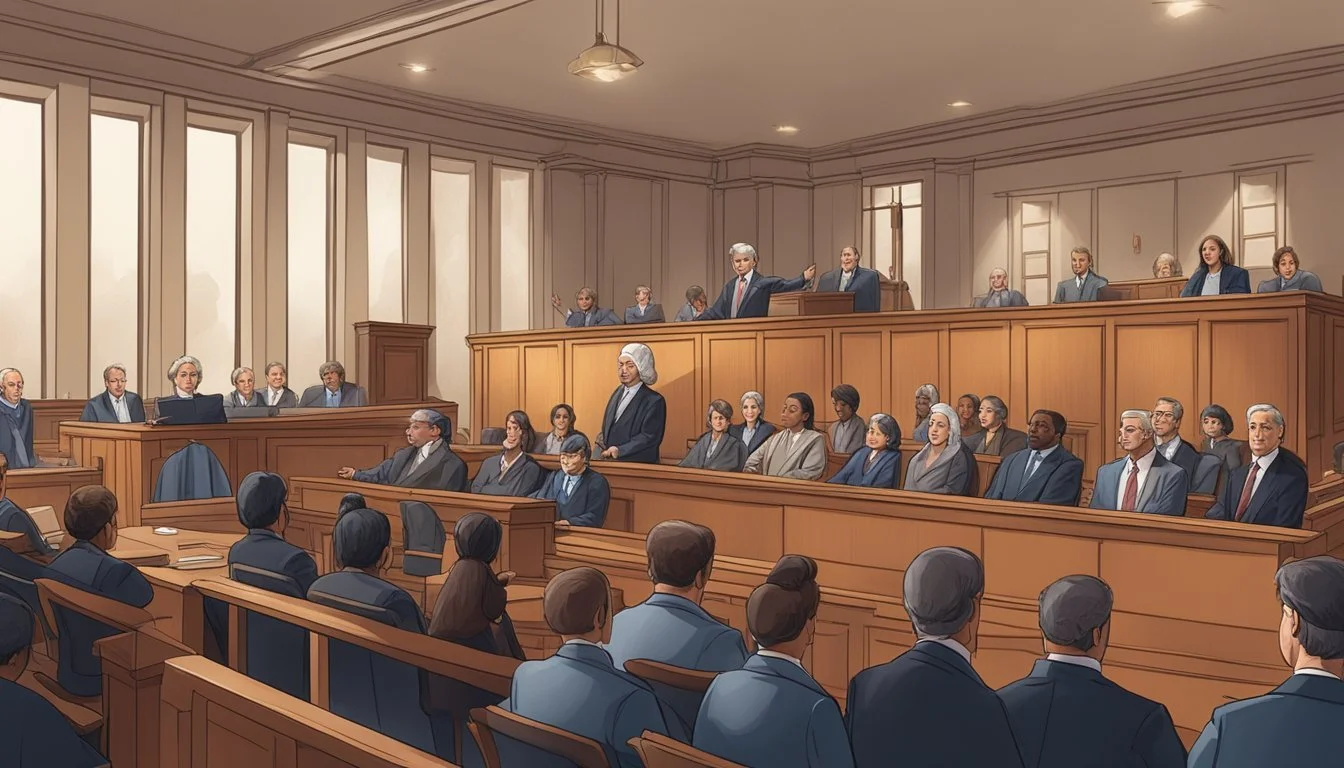Global Perspectives: International Reactions to the Menendez Brothers' Trial
A 30-Year Retrospective
The Menendez Brothers case captivated audiences worldwide in the early 1990s, sparking intense debate across international borders. Lyle and Erik Menendez were convicted of first-degree murder for the 1989 killings of their wealthy parents in their Beverly Hills mansion. The trial's global reach highlighted cultural differences in perceptions of justice, family dynamics, and mental health.
Media coverage of the case spread far beyond the United States, eliciting varied reactions from different countries. In some European nations, there was greater sympathy for the brothers' claims of abuse, while others viewed the crime as an unforgivable act regardless of circumstances. The lavish lifestyle of the Menendez family prior to the murders fascinated many international observers, offering a window into American excess.
The brothers' eventual sentences of life in prison without the possibility of parole drew mixed reactions globally. Some countries with more lenient sentencing practices questioned the harshness of the punishment, while others saw it as a fitting consequence for patricide. The case continues to generate interest and discussion in legal and psychological circles around the world, serving as a touchstone for debates on family violence, wealth, and the limits of self-defense claims.
The Menendez Family Background
The Menendez family's story intertwines wealth, ambition, and tragedy. Their Beverly Hills lifestyle and entertainment industry connections contrasted sharply with the dark events that unfolded.
Jose and Kitty Menendez: Life and Legacy
Jose Menendez, a Cuban immigrant, built a successful career in the entertainment industry. He became an executive at RCA Records and later at LIVE Entertainment.
Kitty Menendez, born Mary Louise Andersen, was a former beauty queen. The couple married in 1963 and established a luxurious life in Beverly Hills.
Jose's business acumen led to significant wealth accumulation. The family enjoyed a lavish lifestyle, complete with expensive cars and frequent vacations.
Despite outward appearances, the Menendez household reportedly had underlying tensions. Jose was described as demanding and controlling, while Kitty struggled with depression and substance abuse.
The Early Lives of Lyle and Erik Menendez
Lyle Menendez, born in 1968, and Erik Menendez, born in 1970, grew up in privileged circumstances. They attended elite schools and had access to numerous opportunities.
The brothers showed promise in various areas. Lyle excelled academically and in sports, while Erik displayed talent in tennis.
Their father, Jose, had high expectations for his sons. He pushed them to succeed, sometimes through harsh methods.
Erik briefly joined Menudo, the popular boy band, showcasing the family's entertainment industry connections.
Despite their advantages, the brothers reportedly faced pressure and emotional challenges within the family dynamic. These early experiences would later become central to their defense during the trial.
Overview of the Menendez Brothers' Trial
The Menendez brothers' case captivated the nation with its shocking details of familial murder and allegations of abuse. This high-profile trial unfolded through multiple courtroom battles, complex legal arguments, and intense media scrutiny.
The Crimes and Arrest
On August 20, 1989, Lyle and Erik Menendez brutally murdered their parents, Jose and Kitty Menendez, in their Beverly Hills mansion. The brothers shot their parents multiple times with shotguns, then staged the scene to look like a mob hit.
Initially, the brothers were not suspects. They went on a lavish spending spree in the months following the murders. However, their behavior raised suspicions, and police began investigating them more closely.
In March 1990, Erik confessed to his psychologist, who later informed police. Both brothers were arrested shortly after.
Key Arguments and Defenses
The prosecution argued that the murders were motivated by greed and the brothers' desire to inherit their parents' wealth. They presented evidence of the brothers' extravagant spending after the killings.
The defense team, led by Leslie Abramson, claimed the brothers acted in self-defense after years of physical, emotional, and sexual abuse by their father. They argued this abuse created a "fear for their lives" that justified the killings.
Psychologists testified about the effects of long-term abuse on the brothers' mental state. The defense also highlighted Jose Menendez's controlling behavior and alleged history of sexual misconduct.
Public and Media Perception
The trial garnered intense media attention, becoming one of the most-watched court cases of the 1990s. Court TV broadcast the proceedings live, turning the case into a national spectacle.
Public opinion was divided. Some sympathized with the brothers, viewing them as victims of abuse. Others saw them as cold-blooded killers motivated by greed.
The media coverage often focused on sensational aspects of the case, such as the brothers' wealth and the graphic nature of the crimes. This extensive publicity raised questions about the ability to conduct a fair trial.
The Trials' Outcomes
The first trial in 1993 ended with hung juries for both brothers. The jurors were split on whether to convict them of first-degree murder or lesser charges.
In the 1995 retrial, many of the abuse allegations were excluded from evidence. This time, both brothers were convicted of first-degree murder and conspiracy to commit murder.
In July 1996, Lyle and Erik Menendez were sentenced to life in prison without the possibility of parole. They have since filed multiple appeals, but their convictions have been upheld.
The case continues to generate interest, with recent developments exploring potential new evidence and legal strategies for resentencing.
International Perspective on the Case
The Menendez brothers' trial garnered significant attention worldwide, sparking debates on justice, family dynamics, and societal issues. It challenged international perceptions of American affluence and legal processes.
Global Media Coverage and Reaction
Media outlets across the globe extensively covered the Menendez brothers' case. European newspapers highlighted the stark contrast between the brothers' privileged upbringing and their brutal crime. Asian media focused on family dynamics and parental pressure. Latin American coverage drew parallels to telenovela-like drama.
Many international commentators expressed shock at the televised nature of the trial, viewing it as a uniquely American spectacle. The case became a talking point in discussions about wealth inequality, domestic abuse, and the US justice system's handling of high-profile cases.
Comparative Legal Analysis
Legal experts worldwide compared the Menendez case to their own countries' judicial processes. British barristers noted differences in jury selection and media access. French jurists debated the role of psychology in criminal proceedings.
Some nations used the case as a catalyst for reviewing their own laws on patricide and matricide. The concept of "imperfect self-defense" intrigued legal scholars in countries with different approaches to justifiable homicide.
Table: Key Legal Differences Highlighted by International Experts
Aspect US (Menendez Case) Other Countries Jury Selection Extensive vetting Often more limited Media Access High (televised) Typically restricted Psychological Testimony Significant role Varies by jurisdiction
Cultural Impact and Discussions
The Menendez case influenced international pop culture, inspiring books, films, and TV shows in multiple countries. It became a reference point in global discussions about family secrets, abuse, and wealth.
In academic circles, the case prompted cross-cultural studies on family dynamics and violence. Sociologists in Japan examined it in the context of "honor killings." European psychologists used it to explore sibling relationships under stress.
The entertainment industry's fascination with the case led to increased interest in true crime content worldwide. This trend influenced programming decisions for global streaming platforms and television networks.
Recent Developments and Current Status
The Menendez brothers' case has seen significant developments in recent years. New evidence and advocacy efforts have reignited interest in their situation, prompting legal reviews and potential changes to their sentences.
Parole Attempts and Public Campaigns
Erik and Lyle Menendez have been serving life sentences without the possibility of parole since 1996. Their imprisonment has sparked public campaigns advocating for their release. Supporters argue that the brothers were victims of abuse, which was not fully considered during their trial.
Kim Kardashian, a high-profile advocate for criminal justice reform, has shown interest in the case. Her involvement has brought renewed attention to the brothers' situation and their claims of childhood abuse.
District Attorney George Gascón's Involvement
In 2024, Los Angeles County District Attorney George Gascón announced a review of new evidence in the Menendez case. This decision marked a significant shift in the official stance towards the brothers' convictions.
Gascón's office is examining claims that the brothers suffered sexual abuse from their father. This review could potentially lead to a resentencing or even a new trial for Erik and Lyle Menendez.
Potential for a New Trial
The possibility of a new trial hinges on the strength of the new evidence presented. If deemed credible, it could challenge the original convictions and sentencing.
Legal experts are divided on the likelihood of a retrial. Some argue that the new evidence is compelling enough to warrant a fresh look at the case. Others maintain that the original verdicts should stand.
The brothers' legal team is pushing for a hearing to present the new evidence. If granted, this could be a crucial step towards potentially overturning their life sentences.
Cultural Representations
The Menendez brothers' case has been portrayed extensively in various forms of media, capturing public interest and shaping cultural perceptions. These representations have influenced public opinion and sparked debates about justice, family dynamics, and societal issues.
In Film and Television
The Menendez brothers' story has been adapted for numerous television productions. NBC's "Law & Order True Crime: The Menendez Murders" (2017) starred Edie Falco as defense attorney Leslie Abramson. In 2023, Netflix released "Monsters: The Lyle and Erik Menendez Story," a drama series created by Ryan Murphy.
This Netflix production garnered significant attention but faced criticism from Erik Menendez himself. He claimed the show contained "blatant lies" about the case and described the portrayals as "vile and appalling."
Several documentaries have also explored the case. ABC's "Truth and Lies: The Menendez Brothers" (2017) and Oxygen's "Menendez Brothers: Misjudged?" (2022) offered in-depth looks at the trial and its aftermath.
Literature and Journalism
The Menendez case has been the subject of numerous books and articles. Robert Rand's "The Menendez Murders" (2018) provided a comprehensive account of the trial and its background.
The Los Angeles Times extensively covered the case, with journalist Dominick Dunne writing influential pieces for Vanity Fair. These articles helped shape public perception of the brothers and their trial.
Journalistic coverage often focused on the sensational aspects of the case, including the brothers' lavish spending after the murders and the dramatic courtroom revelations.
Influence on Pop Culture Figures
The Menendez case has attracted attention from various celebrities. Kim Kardashian expressed interest in the brothers' case, advocating for their release and bringing renewed attention to their story.
Actor Javier Bardem portrayed Erik Menendez in a Spanish-language film, "El Asesino de los Caprichos" (2011). This international adaptation demonstrated the case's global impact.
Chloë Sevigny, known for her roles in independent films, expressed fascination with the case and its complexities in interviews, reflecting the enduring cultural impact of the Menendez brothers' story.
Legal and Ethical Discussions
The Menendez Brothers case sparked intense debates on legal strategies, sentencing, and the impact of trauma on criminal behavior. These discussions challenged conventional views on justice and rehabilitation.
Analyzing the Defense Strategy
The defense team's approach centered on claims of self-defense stemming from alleged abuse. They argued that years of physical and sexual abuse by Jose Menendez justified the brothers' actions. This strategy aimed to garner sympathy from jurors and reduce potential sentences.
Critics questioned the validity of these claims, pointing to a lack of corroborating evidence. The prosecution countered by portraying the brothers as greedy and manipulative, seeking to inherit their parents' fortune.
The case highlighted the challenges in proving abuse allegations in court, especially when the alleged abusers were deceased.
Debate on Life Sentences and Rehabilitation
The Menendez Brothers' life sentences without parole sparked discussions on appropriate punishment for young offenders. Some argued that their age and potential for rehabilitation should have been considered more heavily in sentencing.
Advocates for reform pointed out that life sentences for youth offenders may violate ethical obligations to provide opportunities for redemption. They questioned whether such harsh sentences serve justice or society's best interests.
Others maintained that the brutal nature of the crime warranted severe punishment, regardless of age or circumstances. This debate continues to influence discussions on juvenile sentencing policies.
The Role of Trauma in Criminal Behavior
The trial brought attention to the impact of trauma on criminal behavior. Expert witnesses testified about the psychological effects of prolonged abuse on the brothers' mental state.
This raised questions about how the justice system should account for trauma histories when determining culpability and sentencing. Some experts argued that understanding trauma is crucial for fair adjudication and effective rehabilitation.
Critics countered that allowing trauma as a defense could lead to reduced accountability for serious crimes. The case highlighted the complex relationship between past experiences and criminal actions, challenging simplistic views of guilt and innocence.

